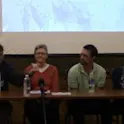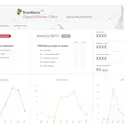
Open science and peer review
23 May 2016
Everything You Need to Know About Plagiarism
By Chloe Schmidt and Daisy Hessenberger Plagiarism is a serious issue in the world of academic publishing. Publishers must take great care to ensure content is original, referenced appropriately, or reused with permission. Plagiarism is not only taking someone else’s work and using it as your own: there are different circumstances under which reproduced content can be considered “plagiarized”. To shed some light on this issue, and explain the process Frontiers uses to detect and handle plagiarism, we’ve created the guide below. We use a tool called iThenticate to scan every submission. You can download an example of an iThenticate report here: Sample_iThenticate_report Some guidelines and resources for further reading: Frontiers author guidelines (see ‘Original Content’): http://home.frontiersin.org/about/author-guidelines Committee on Publication Ethics: http://publicationethics.org/ Office of Research Integrity (US): http://ori.hhs.gov/avoiding-plagiarism-self-plagiarism-and-other-questionable-writing-practices-guide-ethical-writing iThenticate: http://www.ithenticate.com/resources/papers/ethics-of-self-plagiarism Happy writing! PDF version available here: Plagiarism













